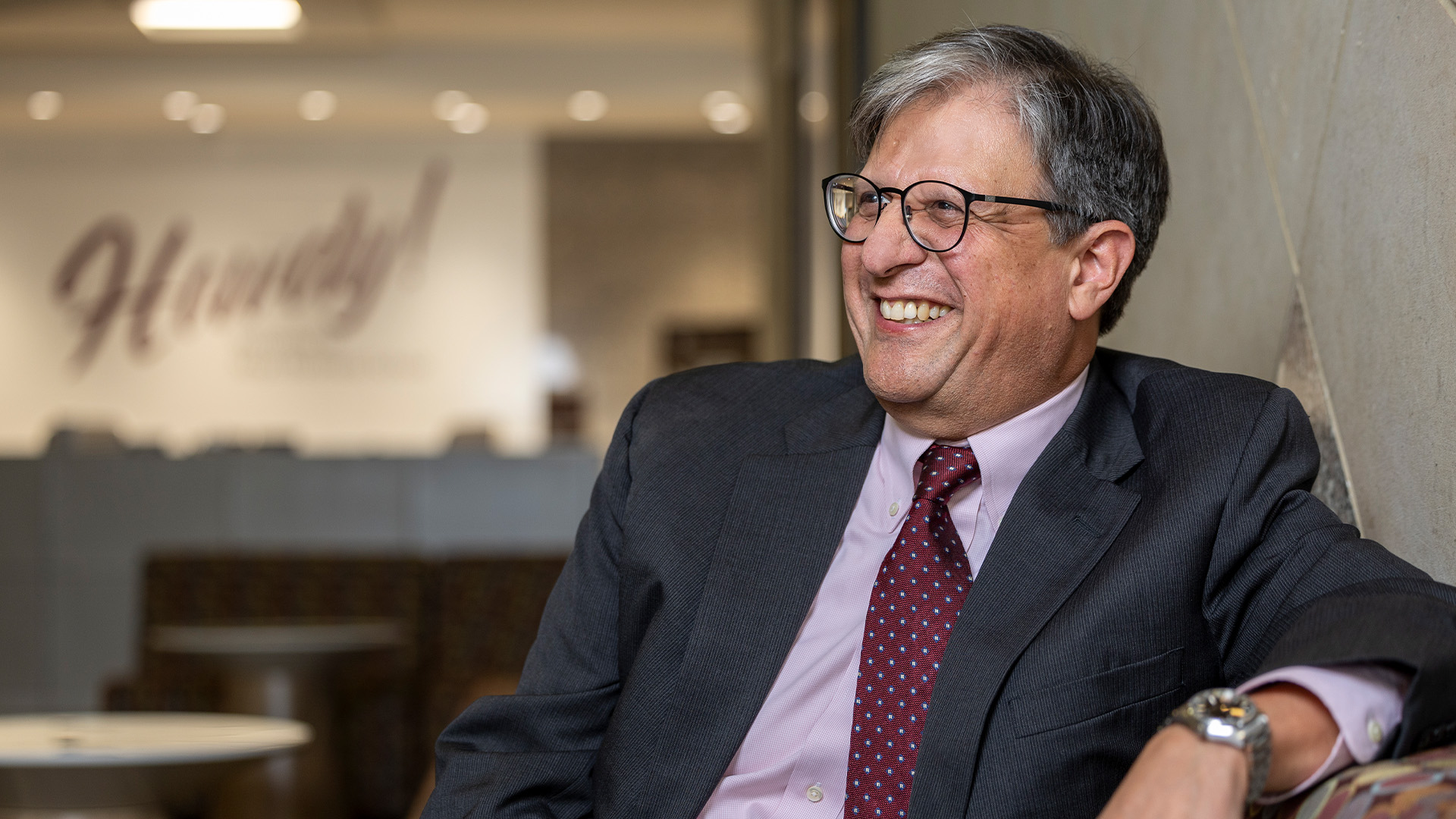Dr. Rogelio Oliva
May 20, 2024
|
By Dorian Martin ’06
 Shaping the International Conversation About Operations Management
Shaping the International Conversation About Operations Management
Dr. Rogelio Oliva made a name for himself through his scholarly work on operations management. Now as the new co-editor-in-chief of the prestigious Journal of Operations Management, he has the opportunity to serve the international community of operations management scholars in a broader context.
Dr. Rogelio Oliva’s stellar academic career has spanned the Americas, including time spent on Harvard University’s faculty and nearly 20 years at Mays Business School. Now, he’s adding another prestigious milestone to his resume: editor-in-chief of the Journal of Operations Management, one of the top 25 journals in the business world.
In that role, Oliva will work with his co-editor and a review team on the journal’s editorial content, which will influence researchers at the world’s top business schools. “Our colleagues have entrusted us to select and bring back to the community the research that we think is relevant and valid,” explained the Robyn L. ’89 and Alan B. Roberts ’78 Chair in Business.
A Quest for Knowledge
Oliva was born into an educated family in Ciudad Valles, Mexico. “By the time my dad had his civil engineering degree, probably less than 5% of Mexico had a college degree,” Oliva noted, adding that his mother, an American, also was well-educated and briefly attended The University of Texas. “I was so lucky to grow up in a household that really emphasized the importance of educational achievement.”
Following in his parents’ educational footsteps, Oliva earned a bachelor’s degree in industrial and systems engineering from Monterrey Institute of Technology — and had a realization that he wasn’t done with formal education. “When I finished my bachelor’s degree, I knew at some point I wanted to have a master’s degree and was looking for a program that would take me away from my comfort zone,” he explained.
He found that opportunity at the United Kingdom’s Lancaster University, where he earned a master’s degree in systems in management. Afterwards, he returned to Mexico to join Monterrey Tech’s faculty. “That’s where I fell in love with academic life,” he explained. “I was teaching at the undergraduate level, so I enjoyed the opportunity to teach and shape young people.”
He also found himself among a group of talented young faculty. “We started working together and had a blast improving the teaching and academic programs, and then we started doing consulting,” Oliva remembered.
Noting the group’s enthusiasm and wanting to improve the institution’s prestige, Monterrey Tech’s leaders began encouraging these faculty members to pursue their doctorates. Oliva didn’t hesitate, enrolling in MIT’s Sloan School of Management, where he earned a PhD in operations management and system dynamics.
From Harvard to Aggieland
After briefly working at Universidad Adolfo Ibáñez in Chile, Oliva joined Harvard University’s Graduate School of Business Administration as an assistant professor for the MBA and Executive Education programs. Eventually, he decided that he wanted to be closer to his extended family—his wife also is from Mexico–and began interviewing with different universities.
Oliva finally settled on Mays. “At the time in 2004, Dean Jerry Strawser had a really strong vision for the school, and he was the one who talked me into realizing that this was where I wanted to be,” Oliva said.
Nearly two decades later, Oliva has settled in nicely. He teaches the introductory operations management course for the MBA program, which he similarly taught at Harvard. He’s also pursued a research agenda that delves into psychology, sociology, and human behavior in relation to operation management.
He also remains intrigued by the ongoing changes in operations management that — because of the continued prominence of the service industry — requires moving away from the rigid efficiencies created by the 20th-century model of the assembly line.
Case in point: health care. “In an efficiency model, a doctor will see a patient every 20 minutes. Everything that can be done by a nurse or assistant will be done by individuals in those positions so the doctor can have a very efficient transactional interaction with the patient,” Oliva explained. “That’s great if you only care about that throughput, but in a service, we’re talking about something different. Are you taking care of the patient? Does he feel well or reassured? We need to manage services in different ways; it’s not about the optimization of costs.”
He sees similar decision points in retail operations. “There are a variety of decisions that might seem trivial — staffing levels, employees’ attitudes, customer’s role in self-checkout — but they’re not,” Oliva said. “That’s where service meets the supply chain — and those are the interesting challenges.”
Upward Trajectory
Oliva has also had a front-row seat to see Mays’ evolution over the years. “Our department in particular has a reputation that was built from scratch,” he explained. “At the time I came in, I was one of three research-active faculty. There are now at least 20 of us, and we’re now the third-ranked information and operations management department in terms of research output.”
Looking forward, Oliva believes that Mays’ future is bright. He’s pleased by Dean Nate Sharp’s vision and believes the school is poised to continue its journey toward preeminence. “The potential is there,” he explained. “The engine that a business school creates for economic change is huge, if you do it right.”


